Great Poetry Books
on psychology, art, photography, animals, sex, and religion ---
that had come to us over the last two decades.
We purposely omitted our favorite volumes of poetry,
and merely listed some of the favorite poems that had come our way.
This gave us time to collect together the best of the best collections,
which we present here.
Be careful, she warns, "Don't underestimate / any of it." Like Brooklyn itself, "Anything you don't see / will come back to haunt you." David Gershator ponders on the Brooklyn Public Library, Here's someone whose life is just as chaotic as those of the rest of us --- and so she sticks it in a poem, poems that are funny and alive and sad and wistful and hurting and wise and agonizing: Is this what it all struggles down to finally? I suppose, if you wanted to pin Pearson on the wall, to figure out where she's coming from, you might say she's a bit dada-imagist, with a good dose of reality, and maybe a tad of Eliot and Lawrence to top it off. Her words reflect a childhood filled with the harsh world of Bible and poverty and beatings and love-hunger --- but all leavened (as it always must be) with a wry sense of the ridiculousness. She defines life as "a bowling alley," St. Christopher's halo slips down his neck "like a hangman's noose," and her father thinks if he builds coops for chinchillas he'll "make millions." As for her piano lesson, she had to stick a cotton wad "inside my pants and held my legs together," and isn't that the way it's always going to be, always? They push through the door just when your world is falling apart --- and you have to pretend that it is not so. Just for protection.
Six of them: great orange, great golden carp This collection isn't namby-pamby stuff: there are tales of school bullies, beating up on "faggots," back room sex, and "Catatonia: In a Classroom for the Slow to Learn," which begins: Jason, look at this book, I say, The text is divided into seven parts, including "O Where Are They Now?" "Sports and Clubs," "A History of Our People" and, under "Homeroom," an old favorite from the late Richard Brautigan: Oh, Marcia, Playing with Gentle Glass Things Computer Magic Writing Letters to Those You Love Finding out about Fish Marcia's Long Blonde Beauty Hers is not so much a questioning as a round gentle O of wonder:
She reminds us of e. e. cummings: funny, sly, shy to condemn, wondering, wondering, always wondering ... why, for instance "we have a soul at times" but "no one's got it non-stop,/for keeps." She also brings to mind Lawrence Ferlinghetti before he got swept up by Too Much Fame. She got Fame, too, but evidently, unlike him, it did not upset her balance, nor her wistfulness, especially when we find her writing lines like, I can't speak for others --- just this sleepy backwater It is those jumps that make us want to ring her up right this minute and invite her to the annual Carpathian Firemen's Ball; or perhaps, if she is adverse to a night dancing the polka, to spend a few hours lying about her yard gazing at Orion winking. Unintentionally. Each fishes up a blob, smoke-sallow with a tinge of beer We've never been there, but it rings true, and so he has, by his art, put us there. It can be something as profound as slavery, something as simple as pulling on a spiderweb, What Murray is doing for us is the perfect show-and-tell, Empson's Seven Types of Ambiguity, with the added virtue of being able to turn a simple object of our lives into another. The common accordion becomes, "A backstrapped family Bible that consoles virtue and sin, / for it opens top and bottom, and harps both out and in ..." It's no accident that Murray won our hearts so quickly. Turns out --- we checked with Wikipedia --- he has a special, spicy loathing for what the poetasters call "postmodernism." According to one critic, Murray has waged a "campaign for accessibility" in modern poetry. As we wrote recently on these very pages, "The editor says it is poetry. I say it's spinach, and I say to hell with it." But Slavitt chose to cut the lines differently, or, better, poetically: cubs of course, but also their trainer who the animals always into a gait that can pass in the ways he does. He cannot disobey
I say it's a toss-up, whether it's prose or poetry, and maybe even academic (isn't this the stuff English teachers delight in showing off to their classes and peers at the Modern Language Association?) Me? I like his stories, for like all good writers, he has to tell us a story, and in this case, the story has to be succinct, to-the-point, catch us throughout its run. or She'd find herself thinking, "I wonder what knucklehead thought that one up?" Grace Paley writes, "Here I am in the garden laughing / an old woman white heavy breasts / and a nicely mapped face." The "old guy" in Wesley McNair's poem is "stunned by the failure of his heart." "Spy with me," writes Klipschutz, "on this train going nowhere," "I know the future, / that iron door, / will be there waiting / no matter what / I have baking in the oven."
Kennedy is capable of giving us an extended day in the life of the poet ("West Somerville, Mass.") crammed with details that implies anything but calm and perfection, even an epiphany in the bathroom: We suspect that the only poets of politics must be symbolists (Baudelaire or Pound) or willing to die for bitterness and scorn (Celan). Kennedy is too contained to bring off a poem on 9/11 or America's response to terrorism --- even though he tries: "Like kindly lantern lights that sift / Through palm fronds at Guantanamo / On the torture squad's night shift." No, what he is best at is gentle wit (Emily Dickinson's Answering Machine), or calling up images of growing up in America so many years ago,
Bolaño was also a fan of André Breton, who turns up (improbably) in the eyes of "The Ghost of Edna Lieberman,"
There are also touches of the imagists, the likes of T. E. Hulme's "Autumn:"
Romantic Dogs contains over forty poems. The translator is Laura Healy. The translations are superb. Some poems are mere scraps --- but almost all contain a gem. This from the long "Last Savage," From "Parra's Footsteps" --- a paean to the radical Chilean musician and poet Nicanor Parra --- And this, from the title poem,
Well, something did change. After the concert he's in the parking lot ("I wondered if there is/any other place where Dylan could give a concert and half/the people would arrive in pickups") is offered a beer, and listens to the screams.
Or there is the day he is appointed poet laureate(!) of Wyoming (!!) ... to which he responds, "poet laureate be damned." "I don't properly thank the governor" because the poet is baby-sitting a friend's dachshund named Abby "while she's away in Denver getting some culture." When he finally tracks down the mutt, the governor is gone and Romtvedt meditates on the risk taken,
The birches stand in their beggar's row To me, the most awful and successful of his writings are those that touch on the holocaust. It is rare, so rare, that a poet can somehow blend the sacred and profane so exquisitely balanced, the unspeakable tension between gloriousness, and brutality --- setting a tautness to the words that reminds one of a combination of Hemingway, Schwarz-Bart, Laurie Lee, Alain Resnais --- or perhaps, strangely enough, the mature Byron: As a girl, in Poland, she watched her husband To the execution wall. A year earlier In the bronze tub the landlord had put Note the reversal, first the execution, then the scene of bathing, with its detail ("five pines" "bronze tub ... a trough for horses.") There is in this a melding of horror and beauty, something that takes poetry beyond poetry, into the realm, as Ruskin would say, of the visionary's divine. This ability to mix of love and violence reaches its highest artistry in his Dachau. In the twenties, the narrator would visit Dachau ... with my brother... From this delicious pastoral scene we get a lecture, if you will, about the plants that grow there in Dachau, an uncommon flower that can grow to an enormous height Suddenly we move from this treed glory to torture, They have kept me in It is glorious, tragic writing of the highest order, a potent, powerful, appallingly beautiful marriage of youth and frivolity and the destruction of all youth and hope.
If you fret, as I often do, about the genetically modified corn that seems to be growing up all over the pastures of American poetry, this might give you heart. Dubie, they tell us in the very briefest of notes, teaches at Arizona State University. I recall taking some poetry classes fifty years ago, and all I got for it was this lousy reviewing job. If I were forty again (if I were forty again!) I might hot-foot it out to Tucson, sign up with Dubie so I could learn to write some real poetry about real things that wring the heart and bare the soul.
Because life is hopeless and beautiful... This is noble stuff, a gift of the poet-gods; this is a man who can write a poem about being asked to write a poem, "A Peace Poem," where he ceases being Howard Nemerov, but: Here is Joe Blow the poet There are no false notes here, no "Look I'm a poet" --- which is what most of the moderns press so hard to tell us --- but rather just old Joe Blow, flexing his fingers (nervously), pulling in that hoary line from Shakespeare, cranking up the poetry machine, telling us that "all by himself/Applying the immense leverage of art,/He is about to stop this senseless war." A fine irony, directed at a world that believes there is much magic in the hands of a poet. And, too, irony directed at himself: thinking that he can be another Homer, or Wordsworth. This is a poet who knows what poetry is and what it isn't: It isn't an executive order, it hasn't the power of law, it isn't a full-page ad in The New York Times ... but ... just a poem with which, in his poet's fancy, he "sees the Nobel Prize/Already." The poet who will forever change man's cruelty to man, only, only... Only trouble was, he didn't have O
It is the task of a poet to take things that don't belong together and wrap them up in the same blanket and as you read it you nod your head and know that it is right and good and proper. Dickman can take snow falling in the black Atlantic, transform it into "seeing, for the first time / a naked body." This isn't show-off stuff, a poetic version of name-dropping. It is, rather, the right stuff: marrying things that should perhaps have been wed all along.
Pat McGuiness writes that during the anarchist attacks in Paris in 1894, Stéphane Mallarmé expressed disgust. "Only one person had the right to be an anarchist: me, the poet, because I alone produce something that society doesn't want, in exchange for which it gives me nothing to live on." Dickman is just such a figure: giving us not only what we should want, but, at the same time, demanding nothing in exchange.
Howl says it is about hipsters, the "best minds of my generation, destroyed by madness," but throughout, there is the sense of comic waste, not only young men destroying themselves in the alleys, but, too, old men who run the world show wasting all on a would-be war of fall-out, radiation, and death.
Ginsberg's rant works because it's probably the first shopping list of lunacy --- sex and dope and madness raised to high art, breathlessly enumerated as brief sketches of those who have gone to the edge.
Before this, it was unheard of for anyone to write open-ended verse in praise of dope and nuttiness and sex, especially gay sex. Despite its wide-open structure, there is a delicious craft to be found in Howl. It's awash in strange juxtapositions, and Ginsberg brings them off: "The tubercular sky surrounded by orange crates of theology;" or "Hotrod-Golgotha jail-solitude watch;" or "Trapped the archangel of the soul between 2 visual images;" or "The ghostly daze of Chinatown soup alleyways and firetrucks."
Would we ever run into such language, thoughts and sensibility with the American Poet Laureates, the ilk of Mark Strand, Richard Wilbur, Robert Pinsky? To an anonymous woman "standing on a terrace," Lerman says we should bring her a drink that "tastes of melon," And always, there is a merry sense of anarchy, time in a beach town, where "Breakfast is thinking about making itself. And for the rest / of the night, the radio continues to say hello." I have said before, and will say again, that the greatest loss to American poetry came from the crowning of the clones of Robert Penn Warren --- Louise Glück, Denise Levertov, Gary Snyder, Richard Wilbur, James Wright --- writers who in their verse have lost (or never had) the fire of the heart. Alan Ginsburg, Lawrence Ferlinghetti, Pete Winslow, Lew Welch wrote wild songs to, for, and about the soul gone barmy, but they were scorned by those who ran the publishing houses (and the prizes) to the east. Go to another
But they were fucked up in their turn Man hands on misery to man.
There's been a lot of specious nonsense written about Larkin. People digging about, trying to figure out who or what he was, obviously miffed because he seems to try to reveal so little of himself, and because he was notoriously --- like Salinger and Nabokov --- offended by would-be biographers fishing about in his past and his writings for something scandalous (or even personal). One critic even had him pegged as "a lesbian," because when he was at Oxford, he wrote a silly, bottom-paddling romance, titled Trouble at Willow Gables, which one writer described as scenes of "frisky young ladies in hockey skirts and black stockings, hairbrushes in hand as they prowl their dorms." Perhaps he was, but who cares? For there are, in this collection, and now for the world to know, perhaps a half-dozen poems that stand with the greatest in the modern English oeuvre: Yeats without the Gaelic nonsense, Eliot without the distancing chilblains, Auden without the simpering, Owens without the war. "Friday Night at the Royal Station Hotel," "Money," "This Be the Verse," perhaps "Toads," "The Trees" --- but above all Two women. When they are Italian they say "ecco." Two women. Their hair plastered to their faces. The sound of water at their door. Open sea. Never ending. Eternity. When you're a sailor you say, "Hey and Hidey and Ho." It sounded silly to me. But give it a second chance, as I did, starting at the beginning and, as they say in Alice and Wonderland, "go until you get to the end, then stop." It quickly becomes a wonder. This stuff makes sense; and, even better, it makes music. And it's great music, "Alice in Wonderland" music. "Two Women Wash Lentils" is about Paris, and a week or two of sensual love between two women --- the light, the beauty, and memories of the beach at Antibes, and "Dark glasses, Day-glo, Picasso." It's a lassitudinous literary lubricious love, with Paris just out the window, and The Book of Oysters, The Book of Slang, To have a crush on: faire des yeux de merlan frites, or literally, to make fried marlin eyes at one another. To make goo goo eyes... Outside the world passes. They pick up their Book of Slang to keep up. Paris is glisten and oyster and cherish --- she'll have to take her word for it. They read from the book. Your breasts are: les lolos (little milk pitchers), les amortisseurs, those little shock absorbers. Blaques à tabac, boîtes à lait... In the shape of the gap. Hovering. Your lips but not quite. Your lips about to say --- but not quite ... It takes a while to catch on, as it should with any worthy novel, essay, poem. There's the word lentille --- slang for "clitoris," éplucheuse de lentilles, a "lentil washer." So the two of them are "lentil washers," two women, just met, one of them quite young, in Paris, in love with loving, with Paris. They adjourn to an apartment, a bedroom, for days. They have some books, including the Book of Slang. There is a cat, and a tolerant landlady. They don't leave, not for days. They feed on each other, sleep, eat, look out at the city, return to love each other again and again. As with all great pornography, there is no need to be specific. (The more specific, the more it dulls the senses.) No --- what you want to do is use the words as a hint, to whirl one around, dipping in here and there, night and day, the city lovely outside, the two of them lovely in each others' arms, the language Between what I say to you in English and what I say to you in French. In the interval between what is said and the translation... and the slang In the interstices. In the liminal space. My lentil and yours. So much pleasure... In the reach. Open your French doors... Most of all, a rare sensuality, the kind that you and I always dream about, a week or more of passion, in French, in English, in Italian, in love --- halos, aureoles, Between the god and the light --- the interstice... This is great writing. And for those of us who cherish a memory, maybe years ago, a chance night, or a week, a year of sustained shoot-off-
announcing his exile from the common man
Millar has even the ability to pull poetry out of the old man poo-pooing his poetry:
He'd insulted my poems as usual
Or there's another, an artful tribute to Keats --- elegantly mixing past and present. The author is driving through Oregon, and he's thinking about his son, and his ex-wife's death, and young Keats in Hampsted --- all while taking in the surroundings:
Its fourteen-year-old grieving his mother's death
And then
Keats knew
We ask that poetry grab us and shake us around some. We want to know about love and death and hurt and pain and woe and wonder and even onanism in jail and the agony of loving men and Charlie Chaplin and Pablo Neruda. We want writers to use all those poetic tricks --- rhythm and endstop and symbols and repetition --- use them to present us with the nuts of life, the anguish and woe and pity and delight of trying to make do in life, in real life ... without checks from The New Yorker or a Guggenheim or a grant from the National Endowment for the Arts. She also seems to have problems with mothers (hers) and fathers (hers), old lovers ("I kept wanting to break him"), aging ("She's thirty-six. She's a thousand years old"), being by herself ("She's a woman alone, which is something different / than a woman"), and being in a cold room ("she wants to put her face / inside a waffle iron and plug it in.") What does Creedon like? If we are to judge from this volume, and several others we've read ... she likes men. Especially if the manliness quotient is high, and love is at hand, and if there's something special: Gumballs, for instance. Feathers. Making, but not necessarily having, babies. Twenty years ago, Creedon found an army of fans with an early poem, litany. It got as far as the American poetic equivalent of Billboard's top twenty. It was widely reprinted and, for many of us, it was a classic. I think of it as one of the great love poems of the last decades, right up there with the lusty and exotic (and thrumming) riffs of e. e. cummings. In it Creedon wrote, and wrote all-lovingly, about Tom. She wanted him to come to her apartment to help put some screws in her daybed(!) I predict that no one, at least no one with heart, will ever forget the passion we all came to have for Tom, and for Creedon. She just wanted to make a sandwich --- a sandwich mind you --- that would forever after come to be known as the "carolyn sandwich." In the 19th Century, poets were made to think of a lover as a rose. Now, because of Creedon, we want to kiss their lips and --- in the process --- not taste the dew but taste the mayonnaise. Creedon's poetry is free of that wimpy love stuff out of Clara Schumann or Rilke, mountains and trees and pale faces caught in the moonlight. No, it's the stuff of convenience stores, standing at the checkout line where What Creedon has done is to be done with those sourpusses who wanted to lock us into being cool (Eliot, Hardy, Lawrence, Spender, Auden), never wanting to let the cat out of the bag: that being that I can and will love you even if I am a cowgirl and even if you come to me by way of the local appliance store: "Don't let the people at Ace Hardware tell you you need a man / Do pick one up anyway, if he looks red and ripe." This, from "How to Be a Cowgirl in a Studio Apartment," has precise and often surprising instructions on finding love, at times not unlike instructions that come with your new cell phone or computer or heater, although translated much more artfully, and with a great deal more humanity, because As you have probably guessed, I have been a fan of Creedon's poetry ever since the very early days of this magazine, maybe even since the beginning of time --- and I tell you, she never disappoints. She's changed, but, as the masters tell us, that is what life is all about. Her early love/lust poems are here, right at the beginning, where they belong, but there is a harder edge further in. There are poems on the lives of so many of her companions ... the women who work the tough, dehumanizing American bottom-tier jobs, as "working girls, or waitresses, or whores," pleated skirts and plaid sock and shiny mary janes and say "I'm not in that trade anymore," she observes, at the end. Creedon does have the gift of surprise, and she does so throughout Wet with adventurous turns-of-phrase. Such as seeing children, "unkempt, top-heavy / wild-fronded radishes in a garden that only grows radishes." Or when one of her loves offers her an "antique nightie," she tries it on and "the bodice ripped open with jagged alacrity; out sprang a breast like a starfish all on its own." Or, in tribute to Gerard Manley Hopkins' "Pied Beauty," The poem ends with praise for the glory of being with her love and the "Jesus and Mary industrial candles, lighting up / your sweat-dabbed glorious face." Oh wouldn't the good and prim Father Hopkins find himself vexed over that turn of phrase, sorely vexed; but, perhaps not so offended with the very last words, en la gloria del espiritu santo.
Land
Poems of Brooklyn
Julia Spicher Kasdorf
Michael Tyrell
Editors
(New York University Press)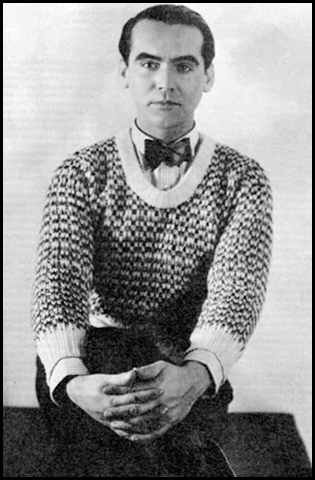
Everything is important:
that thin girl, for instance,
in flowered dress, golden high heels.
How did her eyes get scarred?
Why is that old man crying?
Why does that woman carry
a cat in her pocketbook?... someone tarred the lions
still later someone smashed the lions
later still they up and disappeared
it's tough to be a lion in Bushwick Brooklyn
library lions don't stand a chance
in the man eating streets.
collection
A Middle-Class Marriage
Marlene Joyce Pearson
(Red Hen)The same hour Christ died I started my period
Friday, three o'clock, the bell rang
I ran home from school. Just enough time to down
a glass of milk and go to the bathroom before Mr. Flores knocked
at the door for my piano lesson.
My friend says her teeth hurt, needs to see
a dentist but her insurance agent says, "no, no,"
and she worries she will lose her toothbrush.
Just us humans wishing some control,
some power, to matter somehow?
We humans have power to blast bombs
over Nevada, over Nagasaki. But in the end
we don't know much --- this thrusting,
this holding on.
Contemporary American Poetry about School
Maggie Anderson, David Hassler, Editors
(University of Iowa Press)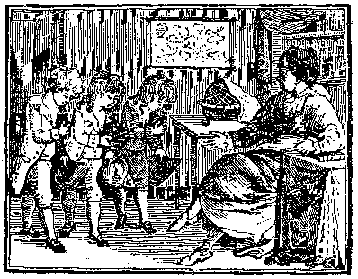
Lined up at the railroad crossing, red stop fins fanning
Each waits, each listens, and crosses in turn
Headed for the lily shoals of children.
but feel like I'm in a dream he's having.
a ship at anchor off the island he is
that dispenses words like boats to his shore.
He knows better than to talk.
I want your long blonde beauty
to be taught in high school,
so kids will learn that God
lives like music in the skin
and sounds like a sunshine harpsichord.
I want high school report cards
to look like this:
A
A
A
A
A+!
collection
Of a Dog
Wisława Szymborska
Clare Cavanagh
Stanislaw Barańczak
Translators
(Harcourt)
Here lie little Zosia, Jacek, Dominik,
prematurely stripped of the sun, the moon,
the clouds, the turning seasons.Let people exist if they want,
and then die, one after another:
clouds simply don't care
what they're up tolet's act like very special guests of honor
at the district fireman's ball,
dance to the beat of the local oompah band,
and pretend that it's the ball
to end all balls.
for me this is
misery and happiness enough:
where even the stars have time to burn
while winking at us
unintentionally.
collection
Les Murray
(Carcanet Press)
which is fired up again, by a thousand degrees, to a mucilage
and brings these reddened spearmen bantering on stage
which begins, at a breath, to distil from weighty to clear ... crepe when cobbed, crap when rubbed,
stretchily adhere-and-there
and everyway, nap-snarled or sleek,
glibly hubbed with grots to tweek.
collection
Poems
David Slavitt
(Louisiana State University Press)
Barefoot on the hot beach sand, you try not to step too heavily in pain you hop, shifting your weight. An innocent eye might suppose you were dancing to some strain that only you could hear. And this is the way the Russians teach bears to dance, heating the floor...
the animals are forced to hop so they
can minimize the pain. Pity the poor
is playing the concertina near the bears.
Pavlov's trick with his dogs was related to
this practice: the concertina scares
for dancing and even joy. And crowds approve.
The trainer probably loves his bears but he has
a hot floor under him too that makes him move
Fate.
selection
from this book
Retirement
75 Poems
Robin Chapman,
Judith Strasser,
Editors
(University of Iowa)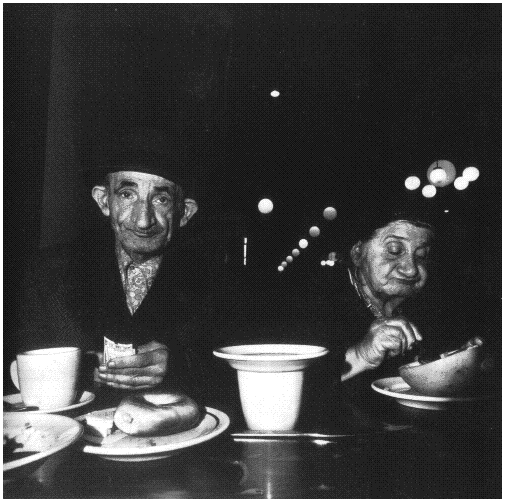
Ideas are like children; there are none so wonderful as your own
If you want the rainbow, you must to put up with the rain.
no wonder
I keep losing
my desk.
reading
from this book
Prominent Bar
In Secaucus
New and Selected Poems,
1955 - 2007
X. J. Kennedy
(Johns Hopkins)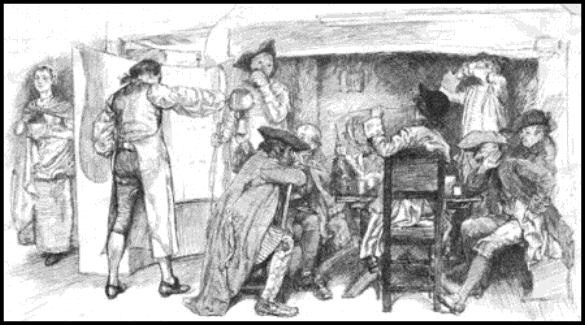
Behind an oak door triple-locked
And those few soldiers he could trust
To stand with firearm hammers cocked
He slept the sweet sleep of the just...Last night in the bathtub, groping for the soap,
I tried a sloppy act of love, felt hope
Batter my heart with vague wings. Pregnant man,
What's eating you?When every shoe store's miracle machine
X-rayed cramped bones within ill-fitting shoes,
When like a knight in armor Listerine
Slew dragon Halitosis, clear heads chose
Calvert...
collection
1980 - 1998
Roberto Bolaño
Laura Healy, Translator
(New Directions)
The Majorcan boys committed suicide
on the balcony at four in the morning. her eyes are the lighthouse
piercing your silence
Her eyes like the ideal
geography book:
maps of pure nightmare
And your blood lights up
the shelves stacked with books, the chairs
stacked with books, the floor
covered with piled-up books
A touch of cold in the Autumn night
I walked abroad
And saw the ruddy moon lean over a hedge
Like a red-faced farmer.
I did not stop to speak, but nodded;
And round about were the wistful stars
With white faces like town children.
It's 1976 and the Revolution has been defeated
but we've yet to find out.
We are 22, 23 years old.
Mario Santiago and I walk down a black and white street.
At the end of the street, in a neighborhood straight out of a
fifties film, sits the house of Darío Galicia's parents.
It's the year 1976 and they've just trepanned Darío Galicia's skull.
He's alive, the Revolution's been defeated, it's a nice day
in spite of storm clouds advancing slowly from the north,
crossing the valley
Darío receives us reclined on a divan.
Of his dark eyes, poets would say: they're like two kites
hovering over the city.Chile is a long, narrow hallway
Without a visible exit...sometimes I'd retreat inside myself
and visit the dream: a statue eternalized
in liquid thoughts,
a white worm writing
in love.
Church
David Romtvedt
(Milkweed Editions)
and the times they are a changing, me
and a bunch of fifty-something-year-olds
remembering when we were young
and so was Dylan and maybe something
really might change.not in naming me poet laureate, but in
naming anyone to such a post. The risk
isn't for what a person might do or say
but for poetry, what it is and might be.
Poem
from this collection
Collected & New Poems,
1967 - 2001
<Norman Dubie
(Copper Canyon)
Each poor tree
Has had its wrists nearly
Torn from the clear sleeves of bone.
These icy trees
Are hanging by their thumbs
Under a sun
That will begin to heal them soon...
Be dragged through the shade of five pines
She had watched him bathe
Out in the field as a trough for horses.
There was then an artists' colony outside the Ingolstadt Woods.
If planted in water. It is a succulent annual. Its private
Appointments are oval and its nodding blossom takes its weight
From pods with crimson threadlike supports.
A small cell. A young lieutenant tortured me that first night ... As I was tortured I forced myself
To dwell on the adult life of the touch-
Hawthorn, and my brother's drunken anatomy lesson that showed
No skill at all there in the silver meadow.
The Mercy Seat
Of Howard Nemerov
Daniel Anderson, Editor
(Swallow/Ohio)
Sitting before the console of the giant instrument
That mediates his spirit to the world.
He flexes his fingers nervously,
He ripples off a few scale passages
(Shall I compare thee to a summer's day?)
And resolutely readies himself to begin
His poem about the War in Vietnam.
A good first line, though he thought that for so great
A theme it would be right to start with O,
Something he would not normally have done,
reading
from this book
American
Poem
Matthew Dickman
(American Poetry Review)I can't tell you how strangely romantic the Atlantic becomes when the sky
is dumping snow into it.Even though you know her name. You have even played a part
in making her naked, but now she is something
altogether different.
reading
from this book
The Voice of
The Poet
(Random House Audio)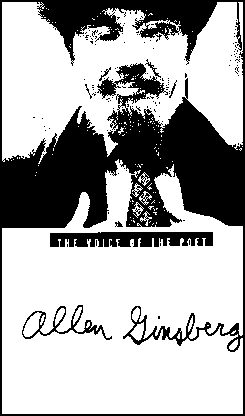
collection
History Unfolds
Eleanor Lerman
(Sarabande Books) And as the sky
hangs out its starry animals --- a fish, a bear
a canny dog, tell her how long it took to form
these constellations.
reading
from this book
reading
from this book
The Complete Poems
Archie Burnett, Editor
(Farrar, Straus and Giroux)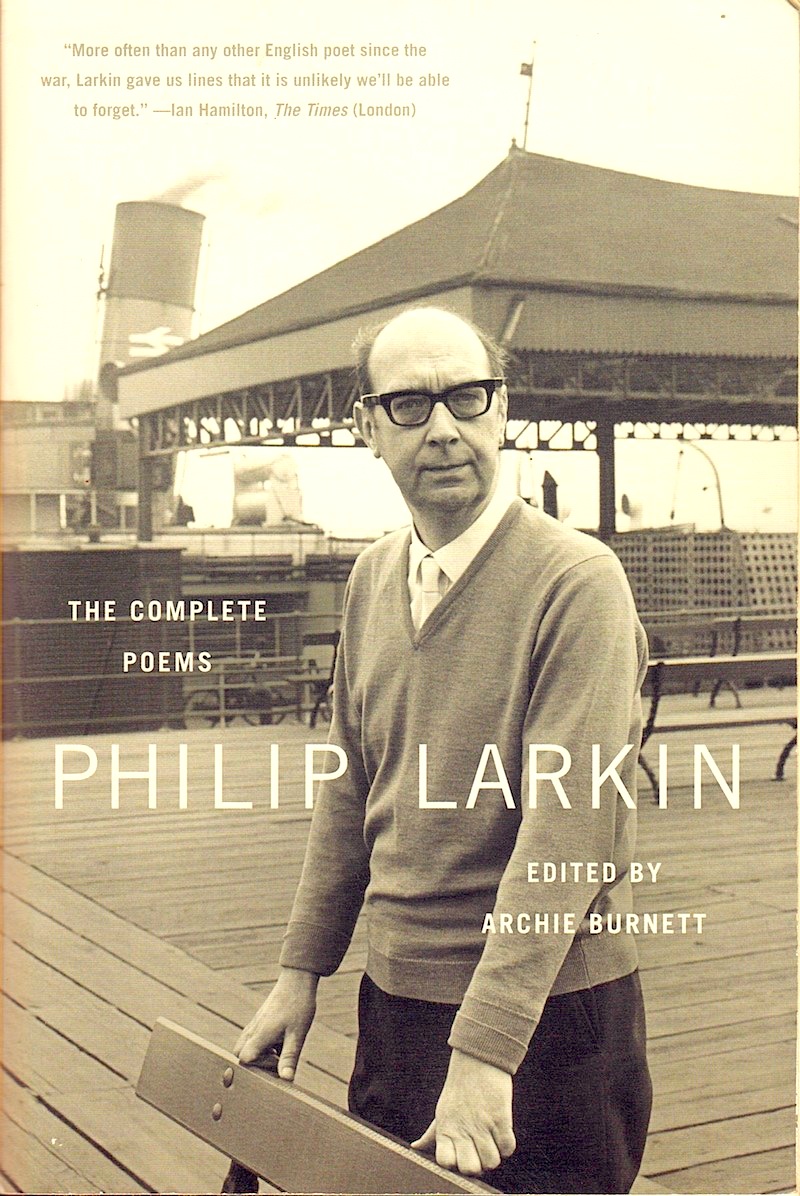
They fuck you up, your mum and dad.
They may not mean to, but they do.
They fill you with the faults they had
And add some extra, just for you.
By fools in old-style hats and coats,
Who half the time were soppy-stern
And half at one another's throats.
It deepens like a coastal shelf.
Get out as early as you can,
And don't have any kids yourself.This is a special way of being afraid
No trick dispels. Religion used to try,
That vast, moth-eaten musical brocade
Created to pretend we never die,
And specious stuff that says No rational being
Can fear a thing it will not feel, not seeing
That this is what we fear --- no sight, no sound
No touch or taste or smell, nothing to think with,
Nothing to love or link with,
The anaesthetic from which none come round.
collection
Carole Maso
(City Lights)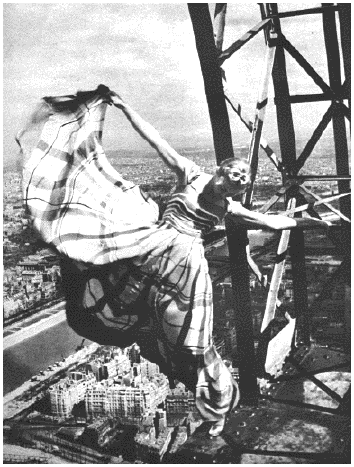
collection
Joseph Millar
(Eastern Washington
University Press)
in a strange quaint language, silvered with alcohol,
calling the waitress "Charming lass"
like some toss-pot Elizabethan roué...
eaten his pork chops and eggs, leering
at the waitress when she brought the Bloody Marys.
Before he got out of the car he'd stuffed two fifties
into the ashtray...
has crept behind the teacher's desk to hide
and I can see a blue heron standing, hunched
and solitary near the blackberry canes, keeping watch.
the blossoms that come riding out
once the sap starts to rise in the tree.
He knew how the tall grass darkens and bends,
how the heron croaks through the April rain
and nobody tells what things mean.
collection
Poems
Carolyn Creedon
(Kent State University Press)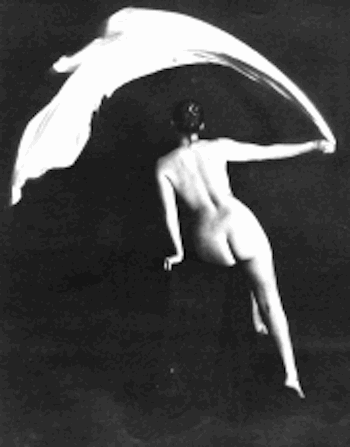
I can put my hand in your
back pockets and my lips and nose in your baseball shirt and feel the crook
of your shoulder blade ... A cowgirl needs
nourishment, and some nights, to lie on her back and let something
bloom above her, looming like the stars. At Silk and White Lace in San Francisco, Carolyn
the madam --- same name, that's why the johns called me Cinnamon,
It's My Very First Time.glory to the little girl with her doll tucked football-style under her arm,
its boy hair crisped sleek in the middle, two like waves meeting each to each...